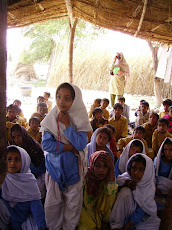UNICEF
Have Women Forgotten Girls? Bringing Girls to the Heart of Beijing
Dawn Walsh- SIA
UNICEF hosted a round-table discussion titled: Have Women Forgotten Girls? Bringing Girls to the Heart of Beijing. Panelists included Mary Robinson, former President of Ireland who has served as United Nations High Commissioner of Human Rights and is currently Honorary President of Oxfam; Auden Lysbakken, Minister of Norway’s Ministry of Children, Equality and Social Inclusion; Charlotte Bunch, Founder and Executive Director of the Center for Women’s Global Leadership; and 16 year old Donnetta of Plan International of the Philippines.
Panelists began by addressing the question, “What has the world done for girls in the last fifteen years?” The group consensus was “not enough.” Culturally, gender stereotypes continue to dampen progress toward girls’ equality; while politically, the international war on terrorism and the cultural wars that followed 9/11 have diverted progress during the past ten years.
With regards to progress that has been made, panelists agreed it has been with mixed results. The most amount of progress has been made in education, but there are still major gaps (class, race, ethnicity, geographical) between those who have benefited and those who have not.
Panelists were asked about the role of men and boys in the fight for gender equality. All agreed that everyone – men, women, girls and boys – need to work together for gender equality. It was noted, however, that with regards to violence against women, men need to be much more vocal in their opposition.
In closing, panelists were asked, “What is your main message to the Commission.” All agreed that more space needs to be made, not only for girls to voice their personal experiences; but to voice their opinion during times of decision-making. In addition, the panelists would like for the Commission to not only consider the rights of girls, but also their dignity.
With regards to the world-at-large, all agreed that more public education is needed. Large-scale public education campaigns need to be conducted in which girls are given voice and their diverse lives and needs are visually represented. However, panelists were adamant that we must not sit around waiting for a cultural of equality to form. In the meantime, political policies must take the lead in creating equality for girls.
Monday, March 8, 2010
Subscribe to:
Post Comments (Atom)







No comments:
Post a Comment